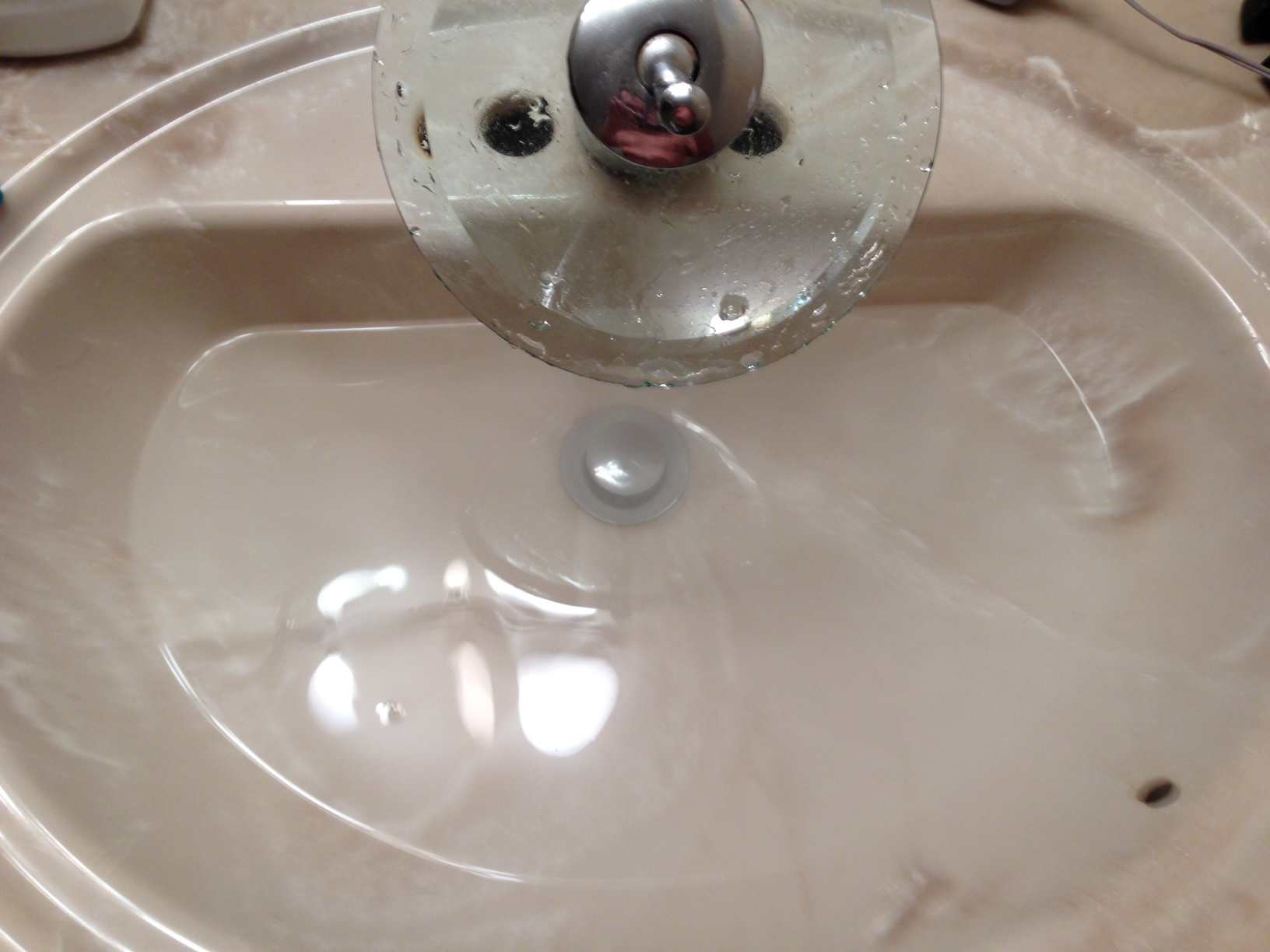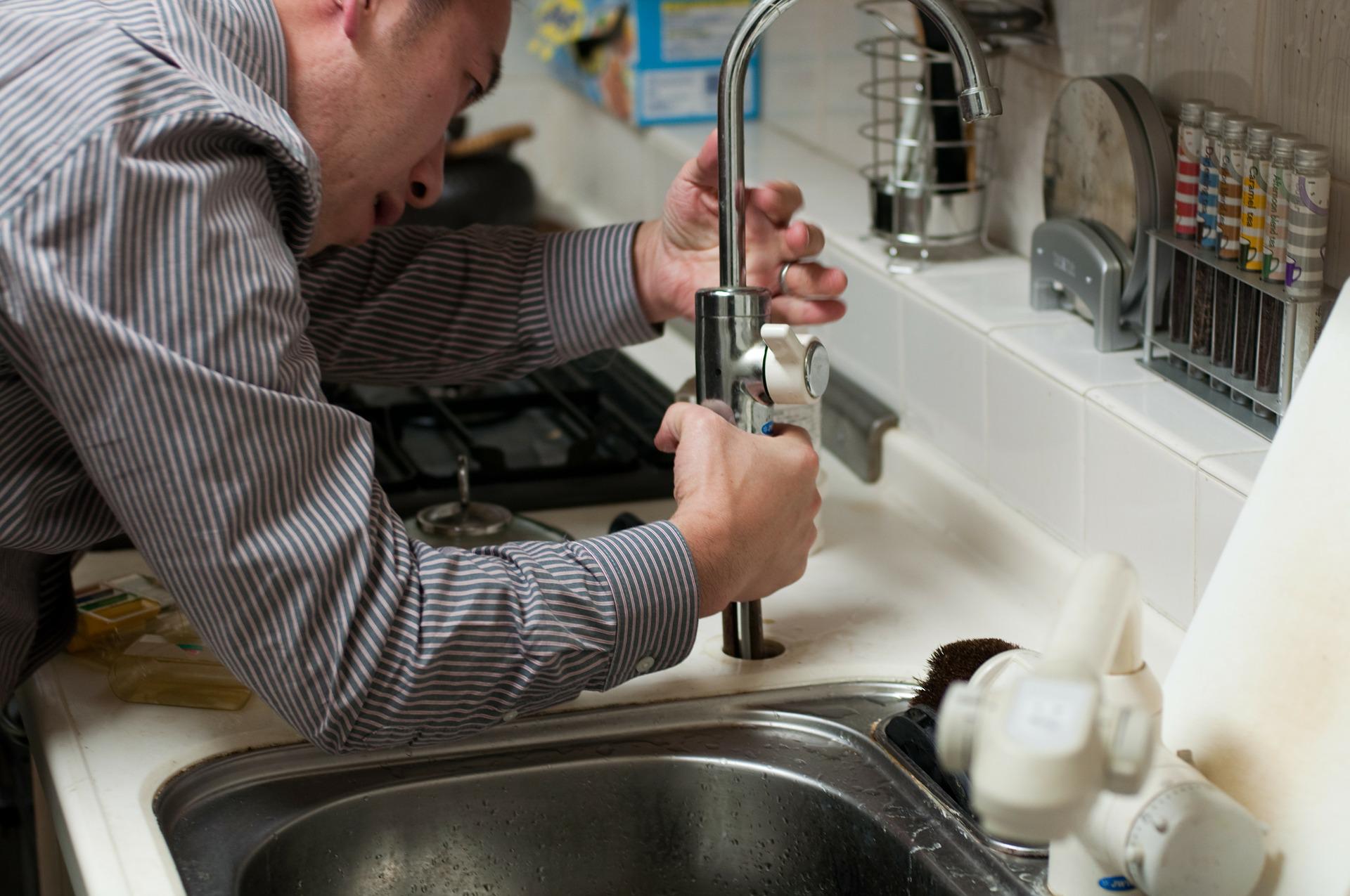Each person seems to have their own individual way of thinking about 7 Ways To Fix A Slow-Draining Sink Before You Call A Plumber.

Introduction
We have actually all been there: You're cleaning your teeth or cleaning your hands, and you see the water merging in the sink. Instead of quickly swirling down the drain, it sticks around, transforming your once-refreshing early morning routine into a mini swamp scene. A slow-draining sink isn't simply frustrating; it's typically a sign of bigger plumbing issues lurking beneath the surface. The good news is that most slow-draining sinks can be taken care of with a little expertise, a couple of basic devices, and some persistence. Ready to tackle this project head-on? Allow's roll up our sleeves and dive right in.
Comprehending the Reasons For a Slow-Draining Sink
Before you begin poking around in your pipes, it assists to know what could be triggering the slowdown. Recognizing the source makes it much easier to pick the best fix.
Tools and Materials You'll Need
The right devices make all the difference. The good news is, you will not need a completely equipped plumbing technician's van to get the job done.
Step-by-Step Guide to Repairing a Slow-Draining Sink
Now, let's enter the nitty-gritty. This detailed process will lead you with basic techniques to recover your sink's water drainage.
Step 1: Remove and Clean the Stopper
Often, the stopper (that little plug you push down to obstruct water) is the very first culprit. Remove it meticulously and wipe any type of hair or crud entraped around its base. Rinse it extensively before placing it back in position.
Step 2: Use a Bettor to Displace Particles
Got that bettor prepared? Placement it over the drain and provide it a couple of firm pumps. The concept is to develop suction that can loosen any type of clog. If you see littles particles drifting up, you get on the appropriate track.
Action 3: Try a Drain Snake or Cord Hanger
If the bettor does not work, it's time to draw out the drainpipe snake. Gently feed it right into the drainpipe and twist as you go. You may really feel some resistance-- that's most likely the clog. Keep twisting and drawing until you get rid of the obstruction. If you do not have a drainpipe serpent, a straightened out wire wall mount can work in a pinch.
Tip 4: Use a Do It Yourself Drain Cleaner
An all-natural cleaner made from cooking soft drink and vinegar can break down recurring crud. Put half a mug of baking soft drink right into the drainpipe, adhered to by half a mug of vinegar. Allow it fizz for around 15 mins, after that flush with hot water. This chemical reaction usually does marvels for small obstructions.
Step 5: Reassemble and Check the Sink
Placed whatever back with each other and run the faucet. Does the water now swirl down the drain at a commendable speed? If yes, offer yourself a pat on the back. If not, don't anguish-- there are still a few even more tricks up your sleeve.
Vital Tools for Do It Yourself Repairs
A bettor is your go-to starting point. A tiny, sink-sized plunger creates suction that can displace minor obstructions. For more relentless clogs, a drainpipe serpent (sometimes called a plumbing's auger) works wonders. A set of handwear covers, a flashlight, and possibly a pair of protective safety glasses are likewise helpful.
Recommended Cleansing Solutions
Moderate meal soap and hot water can aid break down greasy accumulation. A combination of baking soft drink and vinegar is a reliable natural remedy, and chemical cleaners use an even more environment-friendly approach. Keep chemical drainpipe cleansers as a last option, as they can be extreme on your pipelines.
Usual Culprits Behind Slow Water Drainage
So, what's clogging points up? Generally, it's a mix of daily debris-- assume hair, soap residue, tooth paste residue, and leftover food fragments. With time, these tiny bits build up and cling to the pipeline wall surfaces, gradually tightening the flow and making it harder for water to go through. In some cases, natural resource from difficult water can also add to the crud, developing the excellent tornado for persistent clogs.
When is it Time to Take Action?
If you notice the water draining pipes slower than typical, it's a good concept to interfere faster instead of later. Waiting too long can result in complete obstructions, undesirable odors, or even pipe damages. If the water takes greater than a couple of seconds to clear out after shutting off the tap, consider it a warning and prepare to put on your DIY hat.
Safety First: Precautions and Prep work
Prior to you launch into unclogging setting, think of security. You're managing possibly filthy water and particles, so slip on a pair of gloves. If you're making use of chemical cleaners, make sure the room is well-ventilated and adhere to the guidelines on the tag.
Protective Equipment and Work Space Configuration
Lay down some old towels or cloths around the sink location to catch dashes. Remove any products that could get in your method, like soap dispensers or tooth brush holders. See to it you have good illumination-- order a flashlight if needed.
Different Approaches for Stubborn Clogs
Not all blockages are developed equal. If your sink still refuses to cooperate, take into consideration these alternate solutions.
Sodium Bicarbonate and Vinegar Technique
We currently touched on this, however it's worth keeping in mind again. This mild, environment-friendly approach is safer than chemical cleansers and frequently rather reliable.
Enzymatic Drain Cleansers
Enzyme-based cleansers use all-natural bacteria to absorb raw material. They're an excellent option if you're looking to stay clear of harsh chemicals. Just remember, they might take a bit longer to function their magic.
Chemical Drainpipe Cleaning Company: Pros and Cons
Chemical cleaners can blow up with challenging blockages fast, however they're not without drawbacks. They can produce heat and fumes, damage pipes if utilized excessively, and pose environmental threats. Utilize them moderately, and always comply with the directions meticulously.
Preventive Measures to Maintain Your Sink Flowing
Prevention is the very best cure. By embracing a couple of simple routines, you can keep your sink from reducing in the first place.
Regular Cleaning Up Behaviors
Clean down the sink container and component location consistently. Eliminate hair or food bits before they have a possibility to wash down the drainpipe.
Avoiding Dangerous Materials Away
Hesitate before disposing coffee grounds, oil, or fibrous veggie scraps down the sink. These perpetrators hold on to pipe walls, developing blockages in time.
Routine Maintenance Checks
Arrange a fast monthly assessment. Run warm water with the sink for a couple of mins, taking note of the circulation. If it seems slow, act fast before it comes to be a full-blown clog.
When to Call an Expert Plumbing Professional
Occasionally, regardless of how difficult you attempt, that block just will not move. That's when it's time to bring in the pros.
Indications That Indicate an Extra Significant Problem
If your sink drains pipes slowly regardless of multiple efforts, or if you notice water supporting in various other fixtures (like your shower or toilet), you might have a more serious pipes issue hiding much deeper in the system.
Stabilizing DIY Efforts with Expert Help
While DIY can conserve you cash and supply a feeling of accomplishment, there's no embarassment in calling a specialist. A specialist plumber can examine your whole pipes setup, ensuring there's no underlying damages or lasting trouble that might cost you a lot more down the road.
Comparing Expenses and Long-Term Solutions
Before choosing, think about the big picture. A low-cost, quick fix may solve the trouble briefly, yet investing in an extra permanent service might save you cash and stress and anxiety over time.
Evaluating the Expenditures of DIY vs. Expert Solutions
DIY fixes typically set you back little more than the rate of a plunger or a bottle of cooking soft drink. Expert services, on the other hand, featured a price tag yet may stop repeated issues and costly repair services later on.
Purchasing Top Quality Fixtures and Upgrades
If your sink's style contributes to regular blockages, it may be worth updating to higher-quality fixtures or changing the plumbing layout. Consider this an investment in your house's capability and comfort.
Final thought
A slow-draining sink can feel like a small irritation, but it's typically a sign that your pipes requires a little tender loving care. By recognizing the root causes, employing the right tools and methods, and devoting to straightforward preventive measures, you can maintain your sink flowing freely. And when all else stops working, never think twice to call in a professional-- your home's plumbing is worth the investment in treatment and upkeep.
Three Common Ways to Fix a Slow Drain
Baking Soda Method
Boil a full pot of water. Measure out cup of baking soda and pour it down the drain. Then take cup of the magical cleansing substance known as white vinegar and drop that down there too. Allow the mixture to fizz in the drain for five minutes as the vinegar and baking soda combine. Now dump in that whole pot of boiling water. This combination of cleaning substances should clear out anything that is causing your sink to drain slowly. If it doesn t...
Zip-It
If the baking soda method doesn t clear out your drain, it may be because a significant amount of hair and/or other debris has collected there and you need to remove it. Purchase a Zip-It tool at any home improvement or hardware store and insert it into your drain. It will catch any collected hair or debris that s blocking the flow of water. Pull it out. If it s got a big clump of hair, etc. on the end, you ve probably got your culprit.
Drain Cleaner
If these methods don t work, there is the standard drain cleaner that you can also buy in a hardware store or even your local grocery store. It s better if you can use a household solution, but these drain cleaners often work in a pinch. They re very simple to use. You generally just dump them in your drain and wait. If even this method is not effective, it may be time to call the plumber.
https://www.mrrooter.com/oneida/about-us/blog/2017/july/three-common-ways-to-fix-a-slow-drain/

As a serious reader on , I think sharing that portion was a great idea. Appreciated our content? Please quickly share it. Let somebody else find it. We treasure reading our article about Solved! How to Fix a Slow Sink Drain.
Call Today
 Haley Joel Osment Then & Now!
Haley Joel Osment Then & Now! Bug Hall Then & Now!
Bug Hall Then & Now! Melissa Joan Hart Then & Now!
Melissa Joan Hart Then & Now! Burke Ramsey Then & Now!
Burke Ramsey Then & Now! Catherine Bach Then & Now!
Catherine Bach Then & Now!